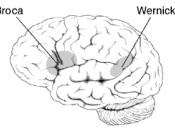What exactly is biological psychology? According to Wickens, biological psychology can be defined "the study of the brain and how it causes or relates to behavior". It is a branch of psychology that analyzes how the brain and neurotransmitters influence behavior, thoughts, and feelings. It names include biopsychology, psychobiology, and behavior neuroscience The purpose of this paper is to examine and analyze the field of biological psychology with primary focus on the theorist that contributed to the historical development of the field, the relationship between biopsychology and other fields of psychology, and the underlying assumptions of the biopsychological approach.
From an historic standpoint the very first individuals to discern that brain was the source for the mind, were the Greeks. Galen was the first to propose a theory of brain function based on the ventricles although he believed that the "heart was the crucial organ," which housed the vital spirit.
(Wickens, 2005) Rene Descartes was a French dualist that proposed that the pineal gland was the means by which the mind and the body interacted. In addition to his theory of the pineal gland he also coined the concept of automatic reflex. His theories and concepts paved the way for modern physiology and psychology. It wasn't until 1791 when Luigi Galvani conducted experiments with frog legs that it became apparent that nerves were able to transmit electricity that Descartes theories were challenged. With a newfound understanding of how impulses were transmitted the structure of nerves and their physiology were still in question. Camillo Golgi discovered a new staining process that enabled the visualization of the neuron and with this newfound visibility Santiago Ramon y Cajel were able to determine and explain the function of neurons.
The underlying assumption of the biopsychological approach is that biological and mental processes are...


